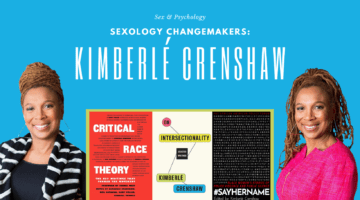Losing Your Virginity: Less Awkward Than It Used To Be
July 30, 2014 by Justin Lehmiller
How do you feel about the first time you had sex? If you pose this question to a bunch of different people, you’re bound to find a range of responses. Some will remember it as incredibly positive and pleasurable, while others will say it was just awkward and uncomfortable. These emotional reactions to our first sexual experiences seem to be important too—studies have found that people who evaluate their virginity loss positively report having more satisfying sex lives than those who look back with anxiety and regret. However, a new study just published in the Journal of Sex Research reports some encouraging news: overall, first-time sex appears to be a more positive experience than it was a few decades ago.
In this study, Dr. Susan Sprecher (who is not only a prolific scholar in the area of sex and relationships, but also an all-around delightful person) recruited student volunteers from her sociology of human sexuality course at Illinois State University between 1990 and 2012 to complete a short sex survey. In total, 5,769 participants took the survey. Participants were mostly female (64%), White (87%), and between the ages of 18-21.
The survey asked participants to indicate the year in which they first had sexual intercourse, as well as the extent to which they felt the following emotions about that sexual event: pleasure, anxiety, and guilt.
All participants reported losing their virginity somewhere between 1980 to 2012. Sprecher found a trend across time such that women’s ratings of pleasure increased in recent years, while their ratings of guilt decreased. Women also showed a slight uptick in anxiety, but that was the smallest of the emotional changes observed. For men, ratings of pleasure and guilt remained pretty much constant, but anxiety decreased significantly.
In general, men reported higher levels of pleasure and anxiety, while women reported higher levels of guilt. These sex differences were observed across almost all years of the study. However, it is interesting to note that men’s and women’s emotional reactions seemed to be converging in recent years (i.e., the differences between them appeared to be getting smaller).
Of course, there are some important limitations of these data. For one thing, all participants came from the same university and were students in a human sexuality course. Thus, the sample is by no means representative of the broader population. Likewise, sexual orientation was not assessed, so we don’t know to what extent these changes might be similar or different across persons of varying orientations. This study also doesn’t tell us anything definitive about why these trends emerged.
Nonetheless, these fascinating results suggest that how college students feel about their first sexual experience seems to be changing for the better, and that men and women may actually be growing more similar in how they look back on their sexual debut.
Want to learn more about Sex and Psychology ? Click here for previous articles or follow the blog on Facebook (facebook.com/psychologyofsex), Twitter (@JustinLehmiller), or Reddit (reddit.com/r/psychologyofsex) to receive updates.
To read more about this research, see: Sprecher, S. (2014). Evidence of change in men’s versus women’s emotional reactions to first sexual intercourse: A 23-year study in a human sexuality course at a Midwestern university. Journal of Sex Research, 51, 466-472.
Image Source: iStockphoto.com
You Might Also Like:

Dr. Justin Lehmiller
Founder & Owner of Sex and PsychologyDr. Justin Lehmiller is a social psychologist and Research Fellow at The Kinsey Institute. He runs the Sex and Psychology blog and podcast and is author of the popular book Tell Me What You Want. Dr. Lehmiller is an award-winning educator, and a prolific researcher who has published more than 50 academic works.
Read full bio >


